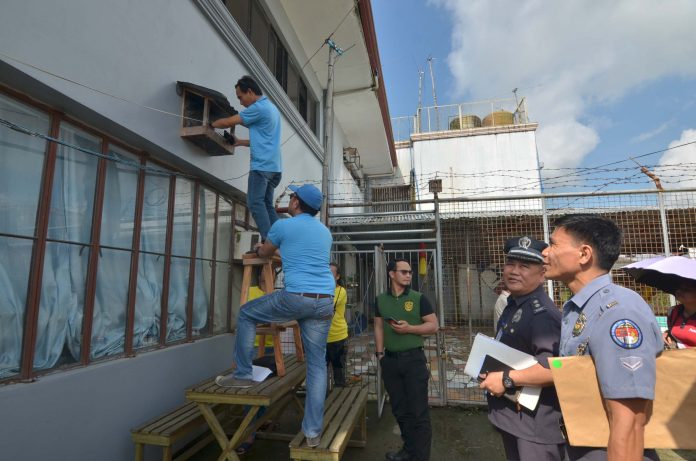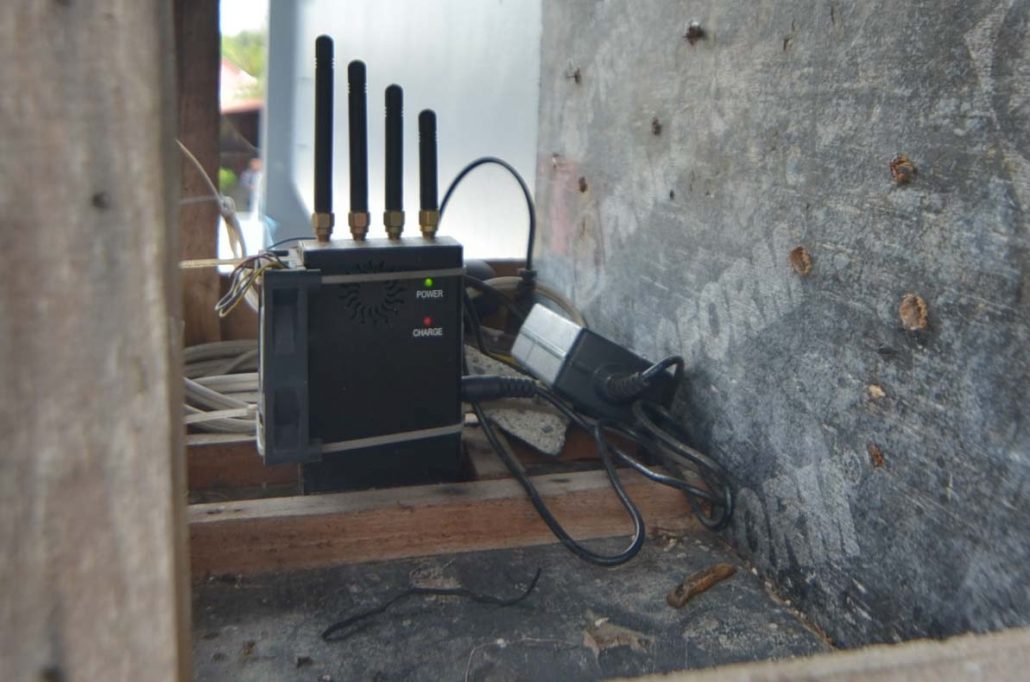
ILOILO – There is no indication that the Bureau of Jail Management and Penology (BJMP) would ditch the phone signal jammers it installed at the Iloilo District Jail (IDJ) in Barangay Nanga, Pototan town. An inspection conducted yesterday showed the devices were not the cause of poor mobile phone signals that riled some residents.
The Sangguniang Panlalawigan’s Committee on Public Order and Security chaired by Provincial Board member June Mondejar inspected the prison facility together with the Committee on Transportation, Communication and Public Utilities, and the National Telecommunications Commission (NTC) Region 6.
NTC engineers checked the radial coverage of the phone signal jamming devices.
Some two or three meters away from the devices, they could already make calls and send text messages, said Mondejar.
It was the same when they were some 20 to 30 meters away from the devices and outside the IDJ albeit somewhat weak, according to the SP member.
“The signals of both Smart and Globe telecommunications companies were checked,” said Mondejar.

The BJMP installed six phone signal jammers at the IDJ in June to prevent inmates who may have smuggled mobile phones into the prison facility from making outside transactions such as trafficking illegal drugs.
According to Superintendent Gilbert Peremne, BJMP assistant regional director for administration, the signal jamming devices had a radial coverage of 20 meters only.
“Waay effect ang signal jammers sa sagwa sang BJMP,” said Engineer Nestor Antonio Monroy, regional director of NTC.
But to make the jammers more effective in realizing BJMP’s goal of frustrating inmates’ elicit phone calls, Monroy suggested that these be relocated inside the cells and not outside the BJMP building as they are currently placed.
Peremne welcomed the suggestion. The BJMP national headquarters is in fact requiring all jails with over 1,000 inmate-population to have phone signal jammers, he stressed.
The IDJ, designed to accommodate some 2,000 inmates, currently has a population of 1,529, said Peremne.
Regarding the complaints of Barangya Nanga residents, Mondejar said his committee would be summoning officials from Smart and Globe to expound on their signal strengths in the village.
“Gusto naton hibaluon kon ano gid ang strength sang signal nila diri sa Barangay Nanga. Kon mahina ang signal nila, pangabayon naton sila nga i-improve nila,” said Mondejar.
Early this month, SP member Matt Palabrica said the signal jammers were inconveniencing Barangay Nanga residents living near the IDJ.
“Residents within the 300-meter radius of the facility cannot send text messages or make phone calls or use the internet adequately. The main center of the barangay which is 100 meters away is severely affected, too. Official communication to other government agencies, especially in emergency situations, cannot be conducted 24/7,” lamented Palabrica.
This matter has serious implications on the economic and social life of residents in this barangay, he said.
“They cannot optimize their livelihood activities or stay in contact with families and relatives elsewhere. Life nowadays is so dependent on cellular communications,” Palabrica stressed.
Signal jammers are not the answer to the nagging issue of drug or contraband control and apprehension, added Palabrica.
“The answer lies in the integrity and competence of the leadership and personnel of the BJMP,” he said./PN





